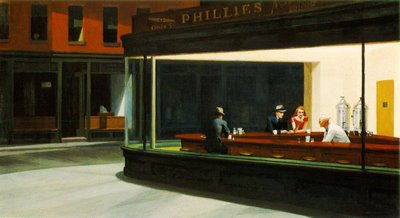I can see why Irving and Russo would be compared -- their novels have many broad characteristics in common (bearing in mind that I'm basing my knowledge of Russo entirely on Empire Falls): there's a motley crew of likable characters, modern New Englanders, who are trying to carry out plain-vanilla lives as best they can while something evil and frightening looms in the background. Despite the dark clouds on the horizon, there's a charming and humorous passage on every page.
But I would say Irving and Russo are fundamentally very different. Or, perhaps, what I think of as "Irving" is a very specific quirkiness in the point of view and in the mapping out of the tale that Russo just doesn't have. Irving is a step away from his characters -- you can hear him lovingly puppet-mastering above the fray. Russo (like many writers) is much closer to his characters, more invisible as a narrator. Irving is also eccentric in the way he tells his characters' stories, often taking up and developing topics and side-stories that never get returned to in the course of the über-story -- which is a way of disarming professional readers, who are used to taking note of seemingly random details, confident they'll later on be woven neatly into the climax of the book.
In some ways, Irving is an "unprofessional" novelist.
Russo is professional -- in both the good and bad senses. Empire Falls is very neatly plotted: all the disparate issues affecting individual characters are brought to bear on the novel's climax, which is a series of surprising, and in some cases shocking, revelations about individual characters' secret intentions. The climax of Empire Falls is quite dramatic, in fact -- way more than any Irving novel ever is.
But Empire Falls is also a bit conventional. You kind of know right off the bat how the chips should fall, and they do fall that way. It's a TV-generation quality. Irving definitely doesn't have that quality.
The best thing about Russo is the witty little turns of phrase he often uses to capture a detail in a scene or the mood of a character. He's in the Dave Barry or Bill Bryson schools of humour, only subtler.
Overarching observation: with The Cider House Rules and Empire Falls, I have spent the month of September in Maine.

Edward Hopper, Nighthawks
No comments:
Post a Comment